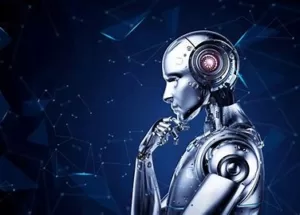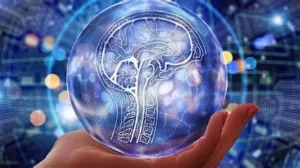
Artificial Intelligence
-
Table of Contents
- Introduction
- The Potential of Artificial Intelligence in Automation and Robotics
- The Role of Artificial Intelligence in Healthcare
- The Impact of Artificial Intelligence on Education
- Exploring the Ethical Implications of Artificial Intelligence
- How Artificial Intelligence is Transforming the Future of Business
- Conclusion
“Unlock the Future with Artificial Intelligence”
Introduction
Artificial Intelligence (AI) is a rapidly growing field of technology that has the potential to revolutionize the way we live and work. AI is the ability of a computer or machine to think and learn, and it is being used in a variety of industries, from healthcare to finance. AI has the potential to automate mundane tasks, improve decision-making, and even create new products and services. As AI continues to evolve, it is becoming increasingly important to understand its implications for the future. AI has the potential to create new jobs, increase efficiency, and even change the way we interact with each other. As AI continues to develop, it is important to consider the potential implications for the future and how it can be used to benefit society.
The Potential of Artificial Intelligence in Automation and Robotics
The potential of artificial intelligence (AI) in automation and robotics is immense. AI has the potential to revolutionize the way we interact with machines and automate processes. AI-driven automation and robotics can help us to increase efficiency, reduce costs, and improve safety.
AI-driven automation and robotics can be used to automate mundane tasks, such as data entry, and more complex tasks, such as machine learning and natural language processing. AI-driven automation and robotics can also be used to automate processes that are too complex for humans to do manually. For example, AI-driven robots can be used to automate manufacturing processes, such as welding and assembly.
AI-driven automation and robotics can also be used to improve safety. AI-driven robots can be programmed to detect and respond to potential hazards, such as fires or hazardous materials. AI-driven robots can also be used to monitor and control hazardous environments, such as nuclear power plants.
AI-driven automation and robotics can also be used to improve efficiency. AI-driven robots can be programmed to perform tasks faster and more accurately than humans. This can help to reduce costs and improve productivity.
AI-driven automation and robotics can also be used to improve customer service. AI-driven robots can be programmed to interact with customers and provide personalized service. This can help to improve customer satisfaction and loyalty.
In conclusion, the potential of AI in automation and robotics is immense. AI-driven automation and robotics can help us to increase efficiency, reduce costs, and improve safety. AI-driven automation and robotics can also be used to improve customer service and provide personalized service. AI-driven automation and robotics can help to revolutionize the way we interact with machines and automate processes.
The Role of Artificial Intelligence in Healthcare
The healthcare industry is undergoing a major transformation due to the emergence of artificial intelligence (AI). AI is revolutionizing the way healthcare is delivered, from diagnosis and treatment to patient care and management. AI is being used to improve the accuracy and speed of diagnosis, reduce medical errors, and improve patient outcomes.
AI is being used to analyze large amounts of data to identify patterns and trends that can be used to improve diagnosis and treatment. AI can be used to identify potential diseases and conditions, as well as to predict the likelihood of a patient developing a certain condition. AI can also be used to identify potential drug interactions and to recommend the most effective treatment for a particular patient.
AI is also being used to improve patient care. AI-powered chatbots can provide personalized advice and support to patients, helping them to better manage their health. AI can also be used to monitor patient health and provide early warning signs of potential health issues.
AI is also being used to improve the efficiency of healthcare organizations. AI can be used to automate administrative tasks, such as scheduling appointments and managing patient records. AI can also be used to streamline the billing process, reducing the amount of time and money spent on paperwork.
AI is also being used to improve the accuracy of medical imaging. AI-powered algorithms can be used to detect abnormalities in medical images, such as tumors or other abnormalities. AI can also be used to analyze medical images to identify potential diseases and conditions.
AI is revolutionizing the healthcare industry and has the potential to improve patient outcomes and reduce medical errors. AI is being used to improve diagnosis and treatment, as well as to improve patient care and management. AI is also being used to improve the efficiency of healthcare organizations and to improve the accuracy of medical imaging. AI is an invaluable tool for healthcare providers and has the potential to revolutionize the way healthcare is delivered.
The Impact of Artificial Intelligence on Education
The impact of artificial intelligence (AI) on education is undeniable. AI has the potential to revolutionize the way we learn, teach, and interact with educational materials. AI can be used to create personalized learning experiences, automate grading and assessment, and provide real-time feedback to students.
AI can be used to create personalized learning experiences for students. AI-driven systems can analyze data from a student’s past performance and use it to create a tailored learning experience. This can help students learn more effectively and efficiently. AI can also be used to create virtual tutors that can provide personalized instruction and feedback.
AI can also be used to automate grading and assessment. AI-driven systems can analyze student responses and provide feedback in real-time. This can help teachers save time and effort, as well as provide more accurate and detailed feedback to students.
Finally, AI can be used to provide real-time feedback to students. AI-driven systems can analyze student responses and provide feedback in real-time. This can help students understand their mistakes and learn from them more quickly.
Overall, AI has the potential to revolutionize the way we learn, teach, and interact with educational materials. AI-driven systems can provide personalized learning experiences, automate grading and assessment, and provide real-time feedback to students. As AI technology continues to develop, it is likely that its impact on education will only become more pronounced.
Exploring the Ethical Implications of Artificial Intelligence
The advent of artificial intelligence (AI) has revolutionized the way we live and work. AI has the potential to revolutionize many aspects of our lives, from healthcare to transportation, and its implications are far-reaching. However, with this potential comes a need to consider the ethical implications of AI.
AI is a powerful tool that can be used for both good and bad. It can be used to automate mundane tasks, improve efficiency, and even save lives. However, it can also be used to manipulate people, invade privacy, and even cause harm. As AI becomes more powerful and pervasive, it is important to consider the ethical implications of its use.
One of the most pressing ethical issues surrounding AI is privacy. AI systems are increasingly being used to collect and analyze data about people, and this data can be used to make decisions about them without their knowledge or consent. This raises serious questions about the right to privacy and the potential for abuse.
Another ethical issue is the potential for AI to cause harm. AI systems are increasingly being used to make decisions that can have serious consequences, such as in healthcare or criminal justice. If these systems are not designed and implemented properly, they can lead to unfair outcomes and even cause harm.
Finally, there is the potential for AI to be used to manipulate people. AI systems can be used to target people with specific messages or ads, and this can lead to a lack of informed consent and a lack of control over one’s own decisions.
These are just a few of the ethical issues surrounding AI, and it is important to consider them as AI becomes more pervasive in our lives. We must ensure that AI is used responsibly and ethically, and that its potential for good is maximized while its potential for harm is minimized.
How Artificial Intelligence is Transforming the Future of Business
The future of business is being transformed by artificial intelligence (AI). AI is a form of technology that enables machines to think and act like humans. It is being used in a variety of ways to improve the efficiency and effectiveness of businesses.
AI is being used to automate mundane tasks, such as data entry and customer service. This allows businesses to focus on more important tasks, such as product development and customer relations. AI can also be used to analyze large amounts of data quickly and accurately. This can help businesses make better decisions and improve their operations.
AI is also being used to create more personalized customer experiences. AI-powered chatbots can provide customers with personalized answers to their questions and help them find the products and services they need. AI can also be used to analyze customer data and provide insights into customer behavior. This can help businesses better understand their customers and create more effective marketing campaigns.
AI is also being used to create more efficient supply chains. AI-powered robots can be used to automate the process of packing and shipping products. This can help businesses reduce costs and improve delivery times.
Finally, AI is being used to create more secure networks. AI-powered security systems can detect and respond to threats quickly and accurately. This can help businesses protect their data and keep their networks safe.
As you can see, AI is transforming the future of business in a variety of ways. It is helping businesses become more efficient, secure, and customer-focused. As AI continues to evolve, it will continue to revolutionize the way businesses operate.
Conclusion
In conclusion, Artificial Intelligence has the potential to revolutionize the way we live and work in the future. It can help us automate mundane tasks, improve decision-making, and create new opportunities for businesses and individuals alike. As AI technology continues to evolve, it will become increasingly important to understand its implications and potential applications. With the right investments and policies in place, AI can be a powerful tool for improving our lives and creating a better future.








